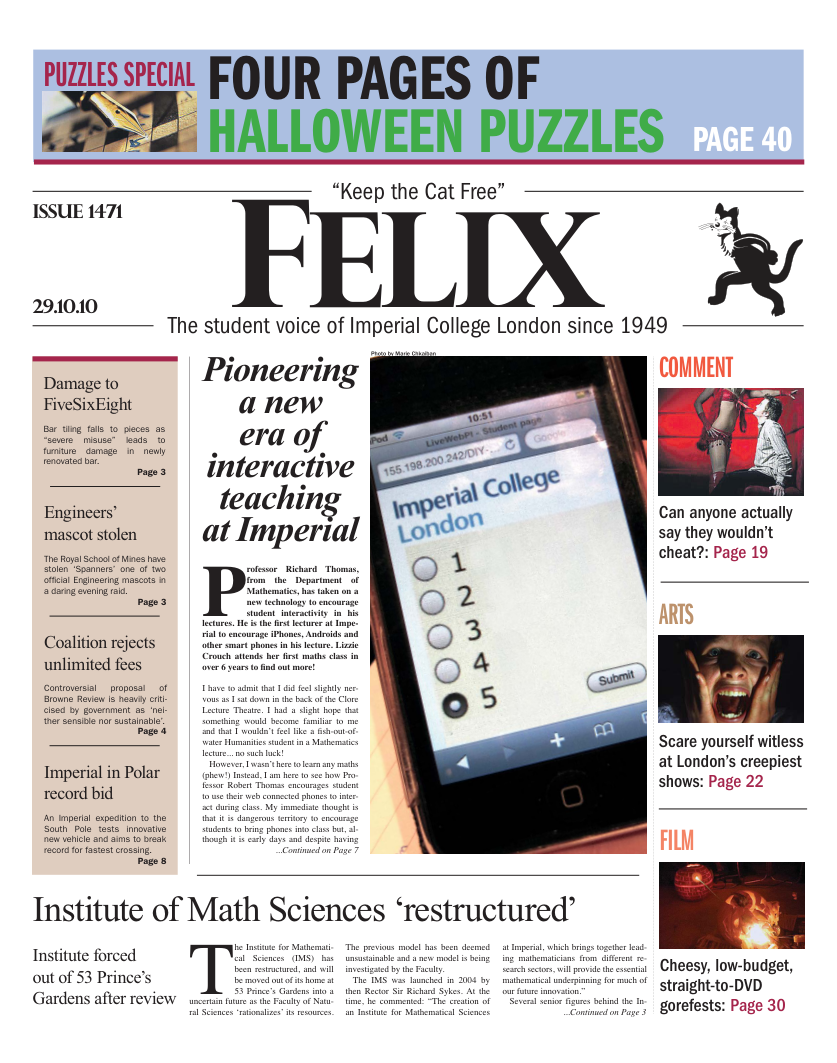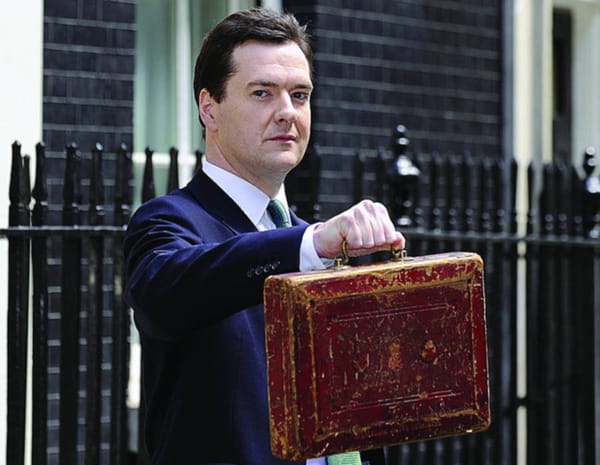Debate whether Lib Dems betrayed voters continues
The Lib Dems put their country before party politics
The accusations that the Liberal Democrats have compromised or “betrayed” their principles has constantly been levelled at them since their rise to shared power in May 2010. These have only intensified with the recent comprehensive spending review and the announcement of a higher cap on university tuition fees. But is it fair to judge them so harshly?
The Liberal Democrats have found themselves in a very unique situation. The wrangling and negotiations between British political parties has not been seen since 1940, when the pressures of World War II forged the last coalition government led by Winston Churchill. Thus few people in living memory have experienced a British coalition government, certainly none of the middle-aged politicians in the Conservative or Lib Dem parties tasked with forming it.
To emphasise this uniqueness, in May 2010, on the day David Cameron was finally ushered in to Number 10, Nick Robinson, the BBC Political Editor sighed in front of the camera as he presented BBC News live and said he’d simply “run out of superlatives” to describe the day’s events in London.
Before the election none of the political parties seemed to consider too seriously the possibility they would be working alongside one another to run the country. Campaigners employed naÔve election tactics like demonising the enemy and eagerly signing pledges, the most high-profile of which is the Liberal Democrats “promising to vote against any increase in tuition fees” at an NUS event.
But no one has the benefit of hindsight and it’s obvious this pledge has put them between a rock and a hard place. However it is rash to roll out pre-election examples like this in order to accuse the Lib Dems of “selling out” because no one could foresee how the election results and negotiations would play out in the coming weeks. Few people think the Lib Dems intentionally made that promise with malice, intending to break it once they were in power with the Conservatives. They have now matured as a party, gained experience of coalition politics and know better next time not to make such promises.
The issue of pre-election and post-election mindsets is intriguingly wider than this. Before the election, everyone was clamouring for change, probably greatly influenced by the 2008 Obama-mania across the Atlantic with his five-word slogan “Change we can believe in.” Britons wanted something different from 13 years of Labour government, we were told. The expenses scandal was still fresh with the electorate.
That is what the Conservative Party slogan “Vote for Change” appealed to. The Lib Dem slogan proclaimed “Change that works for you, building a fairer Britain”, and Nick Clegg’s appeal to the British populace at the end of the first televised debate was to “try something different.”
Well now we’ve got change! An unprecedented occurrence in British politics! Three-party politics is here and the ‘blue vs red’ regime is gone. But complaints flew in left, right and centre. “Everything is so different!” or “The Lib Dems have betrayed us! Sold out!” were some of the typical comments blaring out on the airwaves in radio debates or filling the inches of newspaper opinion columns. Complaining it seems is a favourite past time for many observers.
To those who argue the Lib Dems got the worse end of the deal, it is wise to remember that Britain operates a representative democracy system. To summarise this in one sentence: we the people vote for our representatives in parliament which is the body with most direct influence on our government’s policy. Thus if your political party doesn’t get enough votes, it has less of a right to influence government policy. Be that outside the government as a party in opposition, or inside the government as a partner in coalition.
The Conservative and Lib Dems parties were never on equal footings. The former received 1.5 times more of the votes cast (10.7m to 6.8m), and owing to the First Past The Post (FPTP) system 5.4 times more seats in the House of Commons (307 to 57). And this difference is duly reflected in the 8-page Coalition Negotiations document they published on 11 May 2010.
Manifestos have been chopped and spliced, and understandably Britons are not used to this. Capital Gains Tax was the first issue to crop up in June 2010, with Conservatives giving way to Lib Dem manifesto policy, and the pupil premium is another recent example. The Lib Dems have in turn acknowledged that coalition government policy takes priority over their party manifesto policy in a plethora of other areas, most painfully on tuition fees.
Such issues are at the essence of coalition government politics. Which do you put first, your party or your government? To use a crude sporting example it is like a football player torn between club and country match commitments. Because few of us in living memory remember a British coalition, it may seem an extraordinary or a special situation. But take a simple glance at other nation states with frequent coalition governments, and it soon becomes apparent that our club and country analogy is very common. It is not fair to criticise the Lib Dems for often choosing their country. Soon we Britons won’t be so surprised when similar issues arise again in future.







